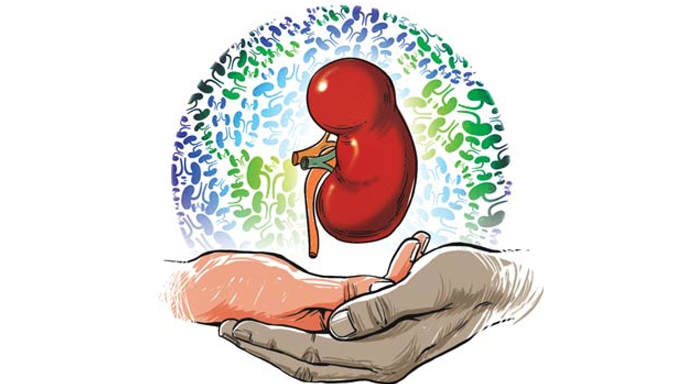Encourage your family and friends to donate their organs after death. Find answers to your questions.
1. What is organ donation?
Organ donation is a noble act which gives us an opportunity to save many lives after our death. The donated organs are transplanted into patients who are suffering from end stage organ failure. As many patients suffer from end stage disease of various organs, the organ donation is the only ray of hope for them.
2. What is organ transplantation?
Human organ transplantation is the achievement of the modern medical science where through surgical procedure the healthy organ from a living or dead person is transplanted on an individual suffering from end stage organ failure. This is established surgical treatment available for the needy patients.
3. Which organs can be donated?
The vital organs like heart, liver, two kidneys, pancreas, intestine, lungs etc. can be donated if we die a brain death. However cornea [eyes], skin and other tissues can be donated after cardiac death. The living person can donate limited organs like kidneys [as we have two kidneys] or part of the liver and only to his/her close relative. The other vital organs can be retrieved only from brain dead individual.
4. What is brain death?
Any individual whose brain stem, an important part of a central nervous system is irreparably damaged is declared brain dead. Brain stem dead individual can not regain his consciousness and breathing as brain stem has the centre for both. The heart can continue to function due to ventilator and other support for a max. time of 36 to 72 hrs. As the blood supply to organs can be maintained for few hours, it is during this period the organs can be retrieved after obtaining consent from the close relative. This death can occur only in Intensive Care Unit.
5. How is brain death declared?
Brain death is declared by the brain death committee which involves team of four doctors recognized by the Govt. and who are not involved in performing the transplant surgery. The team has to perform the brain stem death tests twice at the gap of 6 hrs. This death is declared in the hospitals recognized for transplantation. Brain death is accepted worldwide and the brain death certificate is issued to the relatives.
6. Is there any chance of survival of a brain dead individual?
No. Brain dead individual is declared dead and cannot come back. There is no question of survival of the individual as the set of tests done by the experts’ leave no possible doubts of the diagnosis of brain death.
7. What is the difference between comatose patients and brain dead patients?
Brain death has nothing to do with mercy killing; the organs are taken only after the person is declared brain dead. There is a difference between comatose patients and brain dead individuals. The comatose patients are not dead whereas brain death is the stage beyond coma and individual is declared dead. Organs are never taken at the cost of donor’s life.
8. Does the donor have to die only in hospital?
Yes. As Brain death can occur only in ICU, one who becomes organ donor dies in ICU of the hospital. No vital organs can be retrieved if the death occurs at home. However, eyes can be retrieved up to 6 hrs. after the heart stops beating hence this could be done even if the individual dies at home.
9. Is it legal?
Yes. In India, The Human Organ Transplantation Act was passed in 1994 which mainly covers 3 areas. It recognizes brain stem death. It regulates removal, storage and transplantation of organs for therapeutic purposes. It prevents commercial dealings in human organs. No human organ can be bought or sold.
10. Is the donor’s body given back to the relatives?
Yes. The body is given back to the relatives to perform the last rites after the retrieval of organs. The organs are retrieved only for therapeutic purposes. This is different than body donation where the whole body is given to the anatomy dept. of the Medical College for the research purpose.
11. Are the organs given to only rich?
No. As per the priority criteria like age, blood group, waiting period, Clinical status of the recipients the organs are given to the most needy and suitable recipient. In Maharashtra the Govt. has given guidelines to give the priority score to all the waiting recipients to distribute the organs. Money, race, religion are not the criteria for distribution
12. Will the donor family know to whom the organs are given?
No. The name and address of the recipient is not given to the donor family and vice versa.
13. Is there any disfigurement after organ donation?
No. The organs are removed carefully by taking the donor to the operation theatre and there is no disfigurement. There is cut on the body which is sutured just like any other surgery performed on the living person.
14. Does our religion support organ donation?
Yes. All the religions in India consider it as the noble act.
15. Is any compensation or payment made to the donor family?
NO. It is pure donation and hence it becomes the noble act. However, the family is not charged for the investigations after the consent for organ donation is given.
16. How can one become an organ donor?
Sign an organ donor card. Share the wish with the close relatives as their consent is required before retrieving the organs even if the donor has signed a donor card. The donor card has to be kept with the person who has signed it.
22 Oct
By Team AKF



